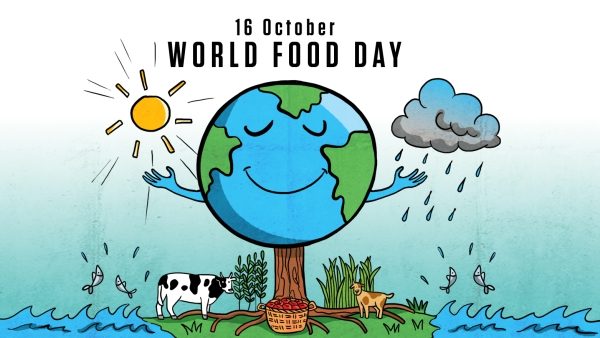World Food Day is one of the most celebrated events in the United Nation’s calendar. This event holds annually on the 16th of October. This year’s edition is devoted to addressing issues of global hunger. The theme of this year’s event is “Our actions are our future. Healthy diets for a #zerohunger world.” This theme essentially reminds us that we are what we eat. Since staying healthy is an obligation we owe ourselves, below are six tips that can help us achieve or maintain a healthy diet.
Eat a Variety of Foods
The saying, variety is the spice of life, also applies to food. We should make eating right a lifestyle. Since no food contains all the nutrients the body needs, our daily diets should be a mix of staple foods drawn from each of the classes of food. This will not only promote good health, it will also make meal times more interesting.
Cut Back on Salt
Salt, also known as sodium chloride is a vital ingredient in food preparation because it adds flavor to food. According to Harvard School of Public Health, the human body needs about 500mg of sodium daily. This enables it to conduct nerve impulses, contract and relax muscles, and maintain the proper balance of water and minerals. However, too much salt is bad for the health. It can raise blood pressure; this increases the risk for heart disease and stroke. It can also damage the kidneys. So, in order to maintain good health, we need to reduce our salt intake. This can be achieved through using salt sparingly while cooking, reducing our consumption of processed foods and drinks most of which have high salt content, and avoiding the consumption of raw salt.
Know your Fats and Oil
Research has shown that what matters most in dietary fat is the type of fat we eat and the quantity consumed. Foods that are rich in unsaturated fat like olive oil, avocados, and fish, are considered healthier dietary choice than foods that are rich in saturated fat like butter, red meat, and palm oil. However, since it may be difficult to avoid unsaturated fats entirely, both kinds of fat should be consumed in moderation and where possible, saturated fat should be replaced with unsaturated fat.
Eat More of Home Cooked Meals
Fast foods are a necessity in our world today. But no matter what PR says, they can never take the place of home cooked meals. So, cook your own food. Home cooked meals are cheaper. Besides, cooking helps you control the quantity of sodium, saturated fat, and overall calories that you consume.
Limit your Sugar Intake
You’re already familiar with the saying, too much of everything is bad. Well, sugar is no exception. It increases the risk of unhealthy weight gain. There is a significant quantity of the hidden sugar in processed food and drinks. Therefore, if you want to cut down your sugar intake, focus more on whole meals. Learn to read labels; learn to identify the many names of sugar and its many different forms.
Cut Back on Alcohol
Alcohol is a psychoactive substance. Even though it has a few health benefits, it should be taken in moderation. Drinking too much or too often increases your immediate risk of injury. It also causes long-term effects like liver damage, cancer, heart disease and mental illness. Thus, if you want to look and feel better, drink less. And here’s a toast to World Food Day.
Source
Greening the Blue
Gillian D’ Souza, “Is Saturated or Unsaturated Fat better for You?” Medical News Today, https://www.medicalnewstoday.com/articles/321655.php accessed 11th October, 2019.
Harvard School of Public Health “The Nutrition Source: Salt and Sodium,” https://www.hsph.harvard.edu/nutritionsource/salt-and-sodium/ accessed on the 10th of October, 2019.
Healthline
Featured image source: Give Healthy


